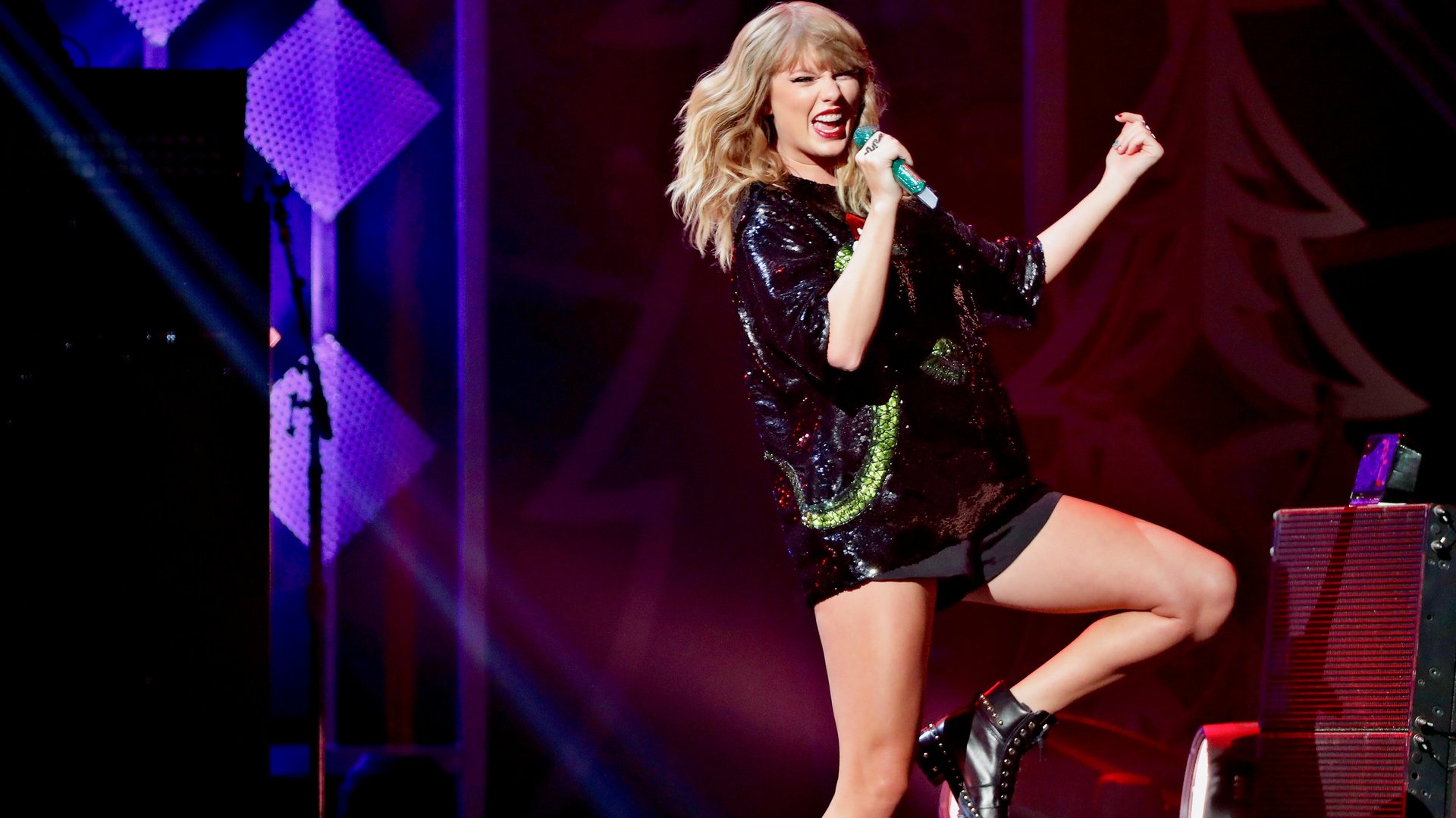Taylor Swift gets a win and a warning from judge in “Shake It Off” copyright case
Pop star Taylor Swift moved to shake off attorney’s fees in a recent copyright infringement case—and learned that players can’t be haters, nor can they push their luck.


Pop star Taylor Swift moved to shake off attorney’s fees in a recent copyright infringement case—and learned that players can’t be haters, nor can they push their luck.
On April 13, judge Michael Fitzgerald of the Ninth Circuit Court of Appeals denied Swift’s request for $75,000 to cover her defense expenses in Sean Hall d.b.a. Gimme Some Hot Sauce Music v. Taylor Swift. Swift had already come out on top after Fitzgerald in February dismissed the infringement case against her, brought by the copyright owners of the 2001 song “Playas Gonna Play.” The plaintiffs claimed that Swift’s 2014 tune “Shake It Off” copied their combined use of the terms “players” and “haters” in the earlier song’s chorus.
The chorus of the plaintiffs’ song, released by 3LW in 2001, includes the lyrics, “Playas, they gonna play / And haters, they gonna hate / Ballers, they gonna ball / Shot callers, they gonna call.” The copyright owners alleged that at the time “playas” and “haters” was a “completely original and unique” lyrical combination.
Swift’s 2014 release “Shake It Off” included the lyrics, “Cause the players gonna play, play, play, play, play / And the haters gonna hate, hate, hate, hate, hate.”
Judge Fitzgerald dismissed the case against Swift, noting various uses of the words “player,” “playa,” “hater,” and “hata,” and combinations thereof, published prior to 2001. The court held that, even if Swift copied the phrasing of the earlier tune, the offending lyrics “constituted a short phrase that was insufficiently creative or original to warrant copyright protection.”
But Swift went too far when subsequently attempting to collect fees for the defense (pdf). Her legal team in March argued that the $75,000 request for fees forcing the plaintiffs to pay would discourage other frivolous copyright cases. But the judge disagreed vehemently, saying that the case against “Shake It Off” was neither farfetched nor an attempt to manipulate Swift into agreeing to a settlement. Fitzgerald wrote:
Although the Court disagreed with Plaintiffs, their litigation position was neither frivolous nor objectively unreasonable. And the purposes of the Copyright Act—namely, encouraging and rewarding creative endeavors—would not be well-served by a fee award. Put more bluntly, if the Court’s only choice were between awarding fees to Defendants based on the Complaint or fees to Plaintiffs based on the Motion, the Court would without hesitation award the fees to Plaintiffs.
Although the earlier song’s combination of “players” and “haters” wasn’t in and of itself protected by copyright law, the court said that some combinations of short phrases could be. “A combination of unprotectable elements may qualify for copyright protection,” the judge explained, provided that the “elements are numerous enough and their selection and arrangement original enough that their combination constitutes an original work of authorship.”
Plus, Fitzgerald reminded Swift, the pop star could benefit from this view of intellectual property in the future, should she file suits similar to the one she just fought. “There are very few recording artists, if any, who have a greater interest than Ms. Swift in a robust regime of copyright law,” Judge Fitzgerald wrote. “Be careful what you wish for.”